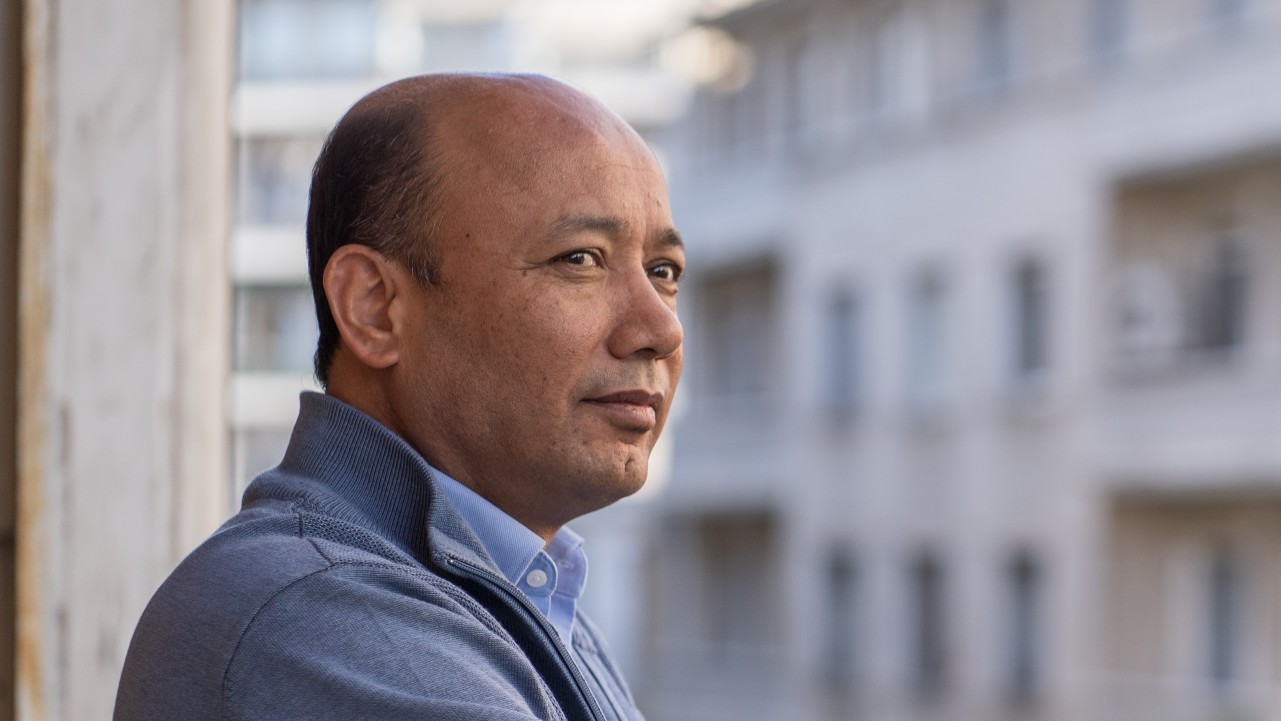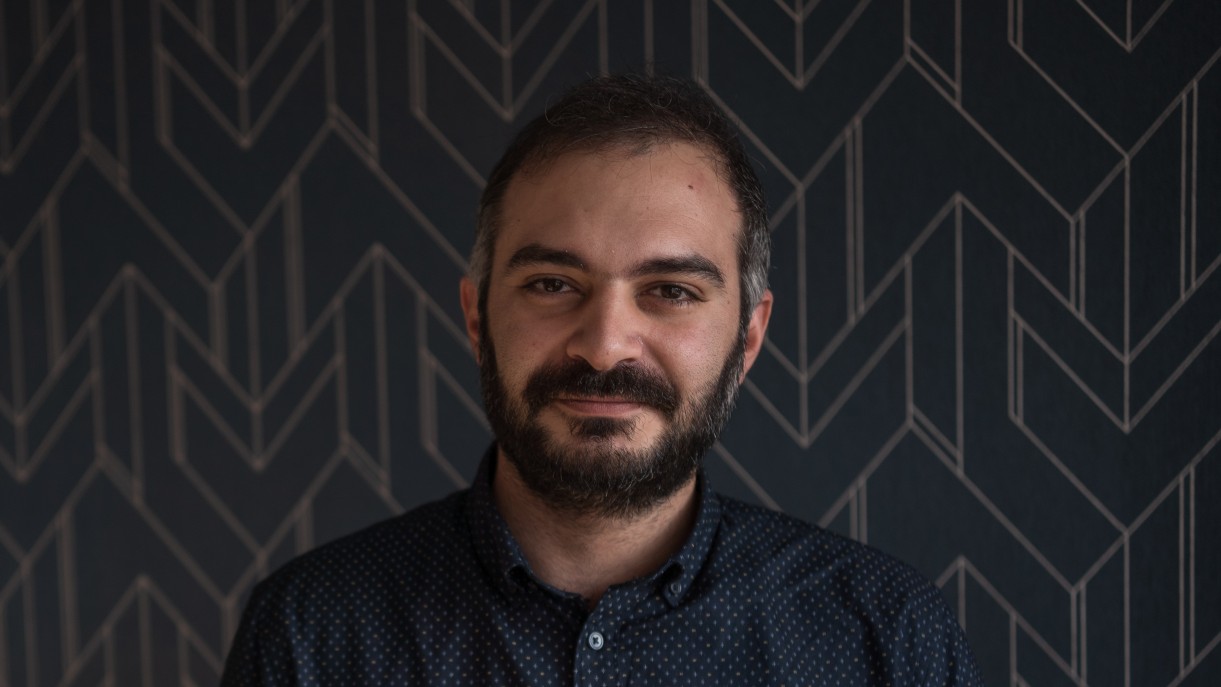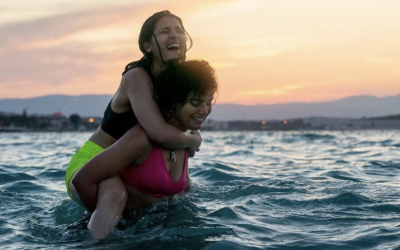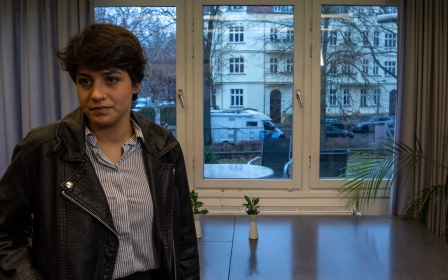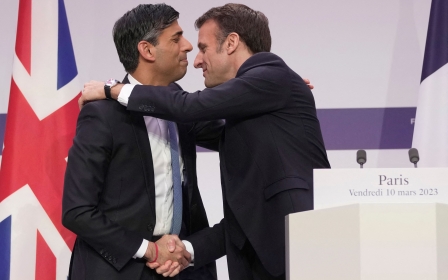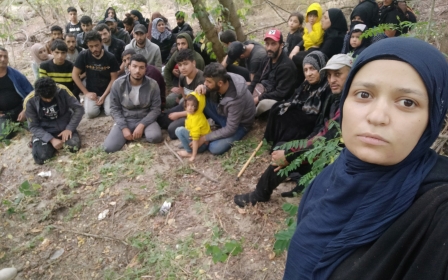Why Greece is clamping down on these refugee rights activists
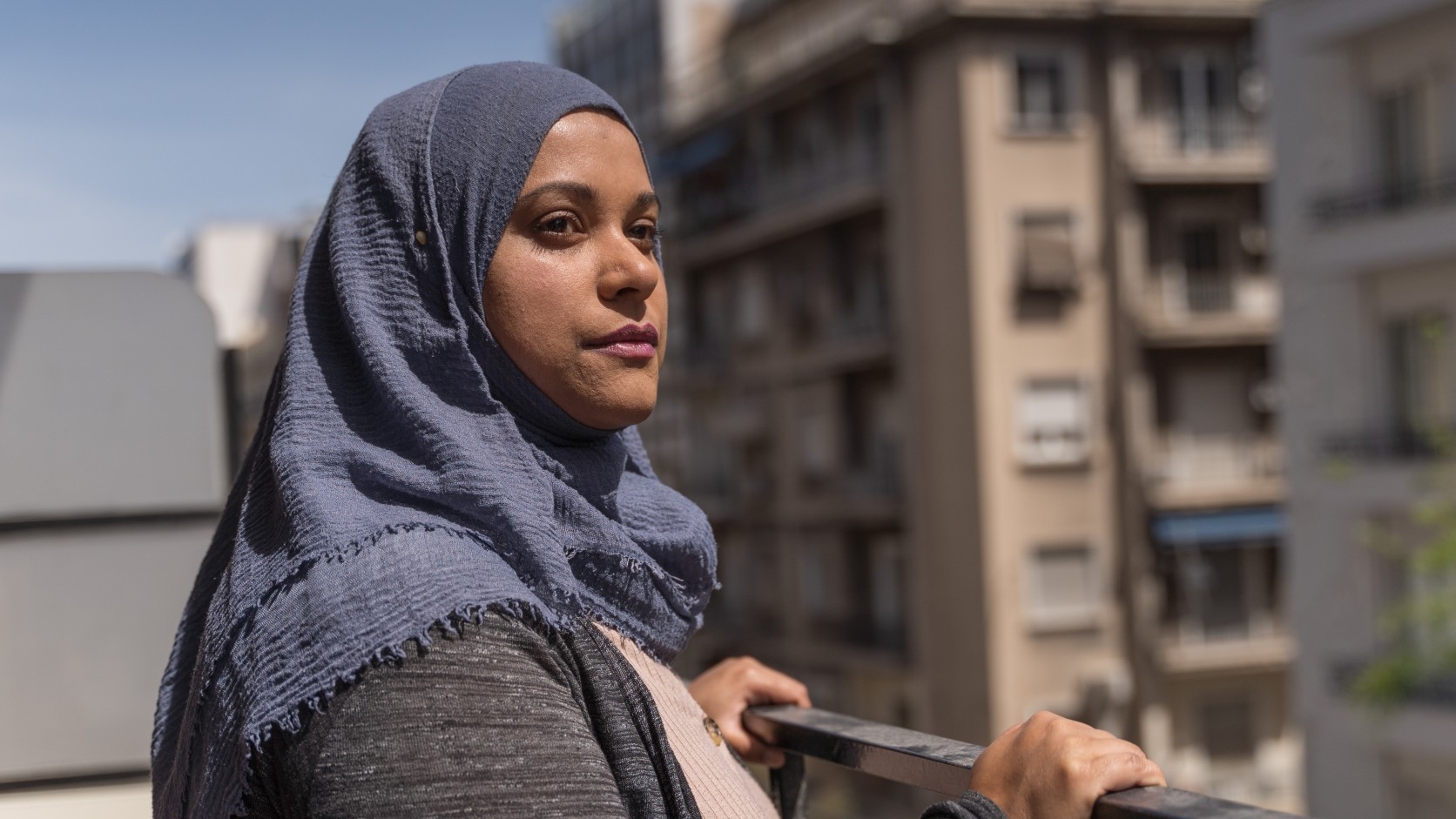
When refugee rights activist Panayote Dimitras learned that he was being charged in connection with his work, he knew the authorities “wanted to shut me down as quickly as possible”.
The director of Greek Helsinki Monitor, Dimitras had been advocating for refugees and migrants making the risky journey from Turkey. Part of that advocacy meant documenting arrivals on Greek islands and reporting their locations to police so that they couldn’t be pushed back, or illegally expelled from the country.
But in December, a prosecutor on Kos Island charged Dimitras and another advocate, the Norway-based Tommy Olsen of Aegean Boat Reports, with crimes related to alleged smuggling.
“We’ve been the pain in the ass of the Greek authorities because we have documented pushbacks and related violence,” Dimitras told Middle East Eye, describing the charges as a form of“revenge”.
Now waiting for the case to move forward, Dimitras has had to pay a 10,000-euro bail, has been banned from international travel, must check in twice a month at a police station and has been barred from conducting work related to the Helsinki Monitor.
New MEE newsletter: Jerusalem Dispatch
Sign up to get the latest insights and analysis on Israel-Palestine, alongside Turkey Unpacked and other MEE newsletters
Dimitras and Olsen weren’t the first humanitarians Greece targeted with similar accusations. Critics accuse the Greek government of creating an environment of fear to deter people from working with refugees and migrants.
The crackdown comes amid a broader effort by the Greek government to deter refugees and migrants from trying to enter the country.
In January, a court on Lesbos Island dropped misdemeanor charges against 24 aid workers. The aid workers, including Irish-German activist Sean Binder and Syrian refugee Sara Mardini, had stood accused of espionage, disclosure of state secrets, unlawful use of radio frequencies and forgery.
But the group still faces a handful of felony charges, including aiding smuggling networks, being members of a criminal organisation and money laundering.
Accusations of pushback
In 2015, the number of refugees and migrants reaching Europe, including Greece, spiked amid armed conflict in Syria, Iraq and Afghanistan, as well as economic and political instability elsewhere.
More than 900,000 people arrived in or passed through Greece in 2015, but that number has since slumped.
In 2021, the United Nations refugee agency (UNHCR) documented some 9,157 arrivals to Greece by land and sea, while 2022 saw some 18,780 people reach the country.
'All of us have witnessed a systematic, organised effort to crack down on NGOs [and] criminalise migration and solidarity'
- Alexandros Georgoulis, lawyer
In the July 2019 elections, the right-wing New Democracy party came to power after campaigning on promises to ramp up deportations and further bulk up patrols on Greece’s land and sea borders.
Since the start of the pandemic in early 2020, the Greek government has stood accused of carrying out widespread pushbacks.
Greek officials deny that authorities have used pushbacks. In December, Greek Migration Minister Notis Mitarachi appeared on the state broadcaster ERT and claimed pushback allegations were part of an “organised attack” on the country.
Dismissing allegations of pushbacks, Mitarachi argued that critics of the Greek government’s migration policies “want Europe to reopen its borders and let millions of people pass through”.
But in December, the Border Violence Monitoring Network, a coalition of aid groups and watchdogs, published the Black Book of Pushbacks. The Black Book includes more than 3,000 pages of testimonies on pushbacks and violence on European borders.
Commissioned by the Left political group, the dossier details instances of beatings, threats and intimidation against refugees and migrants on borders, including in Greece, Bulgaria, Hungary and Croatia.
Chilling effect
Ruhi Akhtar, founder of the Refugee Biriyani & Bananas aid group, said the Greek government’s clampdown is part of a campaign to create a chilling effect among humanitarians.
Akhtar, who has been targeted by a criminal investigation but not charged, said there is a concerted effort to intimidate humanitarians and rights groups, especially those who sound the alarm on pushbacks.
The “criminalisation” of refugee advocacy and aid, she added, could “lead to more deaths” and deter others from “doing humanitarian work”.
'This kind of criminalisation of those who are helping asylum seekers at the border is really, really dangerous'
- Yonous Muhammadi, Greek Forum of Refugees
“In recent months, it’s about [targeting people for] raising awareness and advocating for people at risk of pushbacks,” she told Middle East Eye.
In May 2021, police on the Greek island of Chios arrested Madi Williamson, a nurse who works with refugees and migrants, as she prepared to leave the island. She said police detained, questioned and strip-searched her, as well as confiscated her laptop and phones.
Nearly two years on, she has little clarity about what will happen in her case. Like Ruhi Akhtar, she hasn’t been charged with any offences.
Williamson had worked on and off in Greece for years, she said, but had never had any issues with the authorities.
“What we’ve been told up until this point is that information that they collected from me about me and the people I work with is being used in a criminal investigation,” she told Middle East Eye.
Williamson described Greece’s investigations into humanitarians as a “widespread intimidation tactic” that has “no validity in the eyes of the law”.
Yonous Muhammadi fled Afghanistan and came to Greece as a refugee more than two decades ago. For years, he has spoken out against vigilante violence targeting migrants as well as Greece’s increasingly strict border policies.
As president of the Greek Forum of Refugees, Muhammadi receives calls and messages from desperate people trying to reach the country nearly every day. “I’m afraid most of the time I end the conversation because I know my phone is [monitored] by the authorities,” he told Middle East Eye.
He added, “This kind of criminalisation of those who are helping asylum seekers at the border is really, really dangerous. At any minute, they can condemn you as a trafficker, so it’s very difficult.”
The way Muhammadi sees it, the clampdown also makes it more dangerous for refugees and migrants who depend on aid workers. “Many people are dying,” he explained. “It is really horrible what is going on at the borders.”
Alexandros Georgoulis, a lawyer based on Chios Island, has represented both asylum seekers and humanitarians alike. The way he sees it, the ramped-up pressure on refugees and migrants is part of “a wider EU policy”.
“All of us have witnessed a systematic, organised effort to crack down on NGOs [and] criminalise migration and solidarity,” he told Middle East Eye.
Meanwhile, Greece’s alleged use of pushbacks has forced many refugees and migrants to take riskier and deadlier routes in hopes of reaching Europe. In some cases, boats leaving Turkey have tried to bypass Greece altogether, he explained.
“We’re talking about a distance that is a hundred times longer, and a result, a journey that is a hundred times more dangerous,” Geourgoulis added. “We’ve seen many shipwrecks.”
Last October, at least 22 refugees and migrants died in separate shipwrecks off Greek islands. One of the boats had crashed near Lesbos Island, while another had reportedly tried to bypass the country to reach Italy directly.
‘Breach of their own law’
According to the UNHCR, more than 2,000 people either died or went missing trying to reach Greek territory between 2015 and 2022.
During the first three months of 2023, more than 441 died while crossing the central Mediterranean Sea between northern Africa and Europe, according to the International Organization for Migration.
That death toll made it the deadliest three-month period in six years, although the true number of those who died is likely much higher.
Mary Lawlor, the United Nations Special Rapporteur on Human Rights Defenders, has criticised the Greek government over the pressure on humanitarians and aid workers.
Lawlor had visited Greece in June 2022 to research the situation for human rights defenders in the country, including those who work with refugees and migrants. In March, she presented her findings to the UN Human Rights Council.
In her report, Lawlor noted that “human rights lawyers, humanitarian workers, volunteers and journalists [covering migration] have been subjected to smear campaigns, a changing regulatory environment, threats and attacks, and the misuse of criminal law against them, to a shocking degree.”
In response to Lawlor’s report, Greek Foreign Minister Nikos Dendias insisted that the ongoing investigations and prosecutions of humanitarians were not baseless.
Dendias wrote in February that “criminal prosecution can be instigated in cases of suspicion of illegal collaboration between anyone, including any NGO members, and cross-border criminal networks engaged in illegal activities”.
For his part, Dimitras, from the Greek Helsinki Monitor, says “almost every step taken” by authorities is “a breach of their own law”.
He added, “It’s not the kind of climate you find in states that have supposedly properly functioning democracy.”
Middle East Eye delivers independent and unrivalled coverage and analysis of the Middle East, North Africa and beyond. To learn more about republishing this content and the associated fees, please fill out this form. More about MEE can be found here.


